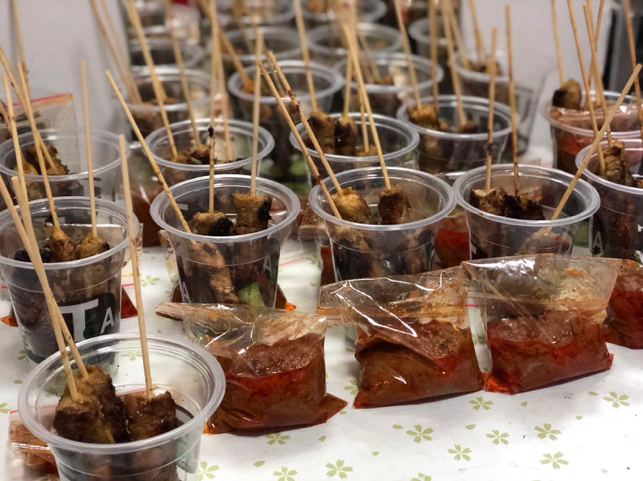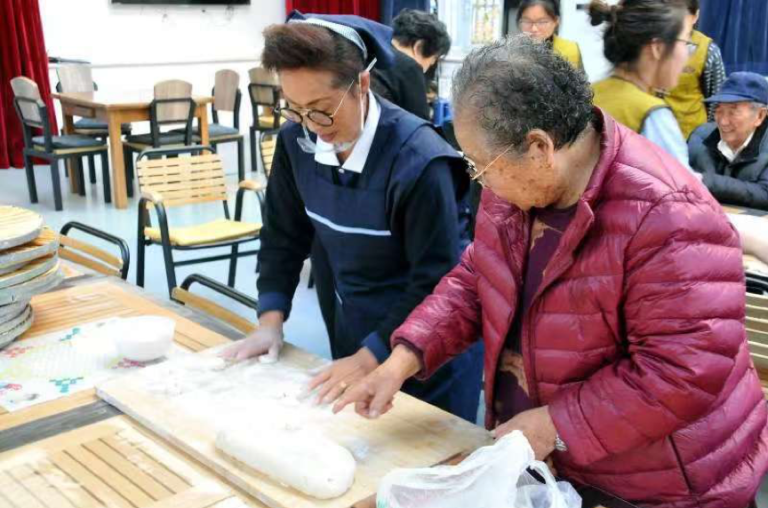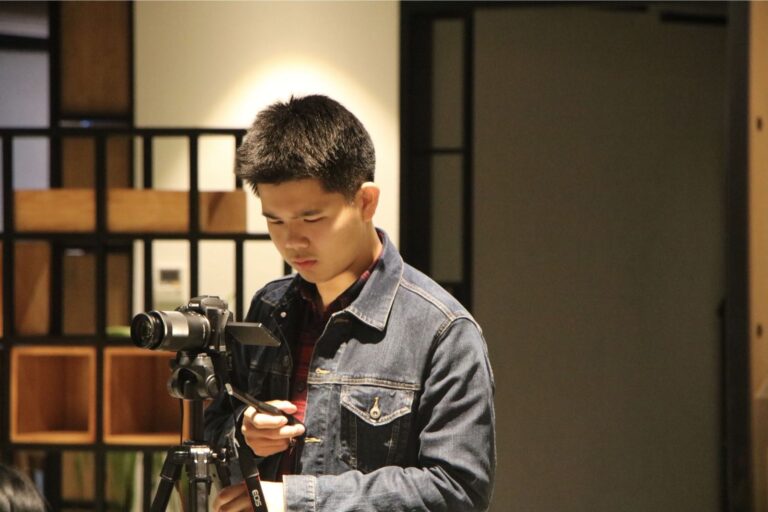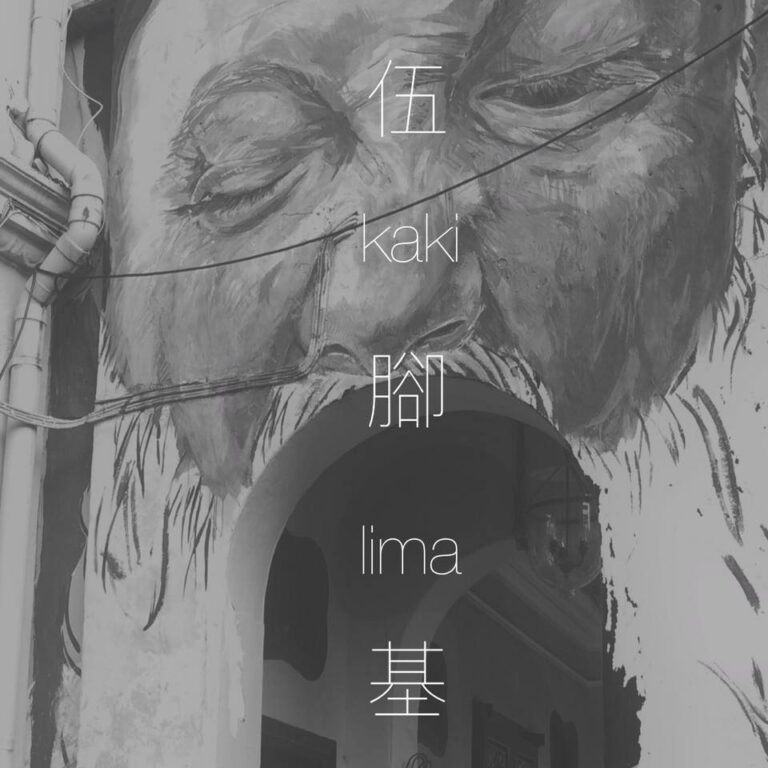We Malaysians have one common weakness, that being our attachment to our beloved Malaysian cuisines! Being far from the homeland meaning not getting our daily dose of Nasi Lemak and Teh Tarik. But Alhamdulillah we’re lucky enough that here in Beijing there’s some very dedicated fellow Malaysians who spend some time to learn and cook some of our favourite delights.
At present these group of people sort of facilitated the growth of the food business handled by students here. In this article we’re going to introduce to you, our readers, two of these talented cooks/business owners.
Nur Shafrina Binti Shamsu Ngarifin [沙利娜]
Beijing Language and Culture University
Shafrina came to Beijing in the year 2014 with no skills in cooking at all. In fact, her impression was that it was difficult and a waste of time. In the beginning she was frequent to visit restaurants like 马华 . Eventually though it proves to be too pricey of a lifestyle, thus she began to self-thought herself to cook with the assistance of YouTube, and her very first dish was Tom Yum.
During her second year as a Bachelor, she decided to start selling food just for fun. To her it was something she can do to spend her leisure time with, like a hobby. She has a wide range of delicious cuisines in her menu, from Nasi Lemak to Satay, then there’s Malaysian traditional deserts and snacks like Tepung Pelita and Roti Poket Doraemon, all of which she learned from YouTube.
Her immense success is not without obstacles. She told us, some rare ingredients like the banana leaf for the Tepung Pelita was bought from 淘宝. But it can be rather disappointing when it arrived wilted due to the long journey of 5 days or so. Another challenging moment for her is during Ramadhan. Despite getting tons of orders, she often worries that the food would taste differently. Due to fasting, she can’t taste them to make sure. But so far the customers are satisfied with everything.
Shafrina’s customers often times are the Malaysians in BLCU. On other occasions, she could receive special orders from the student body representatives such as COMB and AMSIB, sometimes even the Malaysian Embassy. Her partner to help her deal with everything is her roommate.
Muhammad Azrul Aziizi Bin Mohamed Yusof (aka. James Azrul) [李景焕]
Beijing Foreign Language University
Azrul have a rather interesting background. He has a Singaporean father and his mother sells food for a living. He learned to make Curry Puff from his mother, in which the recipe was passed down from his grandmother. Initially though, Azrul was into dancing, he never thought of cooking. But he was eager to try something new, thus he began learning. He even tried some viral food from social media. In 2016, when he first arrived in Beijing, it was at BFSU’s International Cultural Festival that he noticed the potential market for Malaysian cooking. It inspired him to start selling his Curry Puff.
Now he make them twice a week. It has become part of his routine. Surprisingly he did it all alone without any assistance. But the people around him showed great support by buying his Curry Puffs and some helped him to find better deals for the ingredients required.
Azrul mentioned that is was not easy initially. Lacking in managerial skills, he was not very good at budgeting. Luckily his mother acted as a mentor, showing him the ropes, now he is better at it. The crust was another concern, because he chose to do them by hand, it takes practice to prefect them. But he is determine to still do it traditionally, shaping each one by hand, in order to maintain crispiness. All the ingredients used are readily available here in Beijing. That is one thing he is very happy about.
To Azrul, the best part about doing this business is that his customers are not limited to only Malaysian. In a school programme once, where they allowed international students to sell food, his Curry Puff got the attention of other students of his university. From then on he will receive orders from people of various backgrounds. More so since he sells 1元 per Curry Puff!
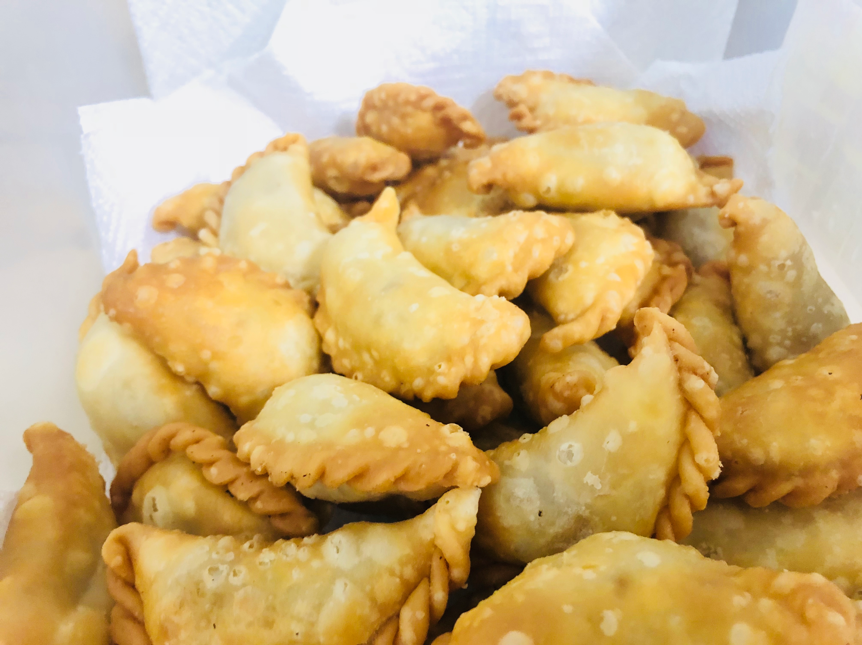
The making of curry puff
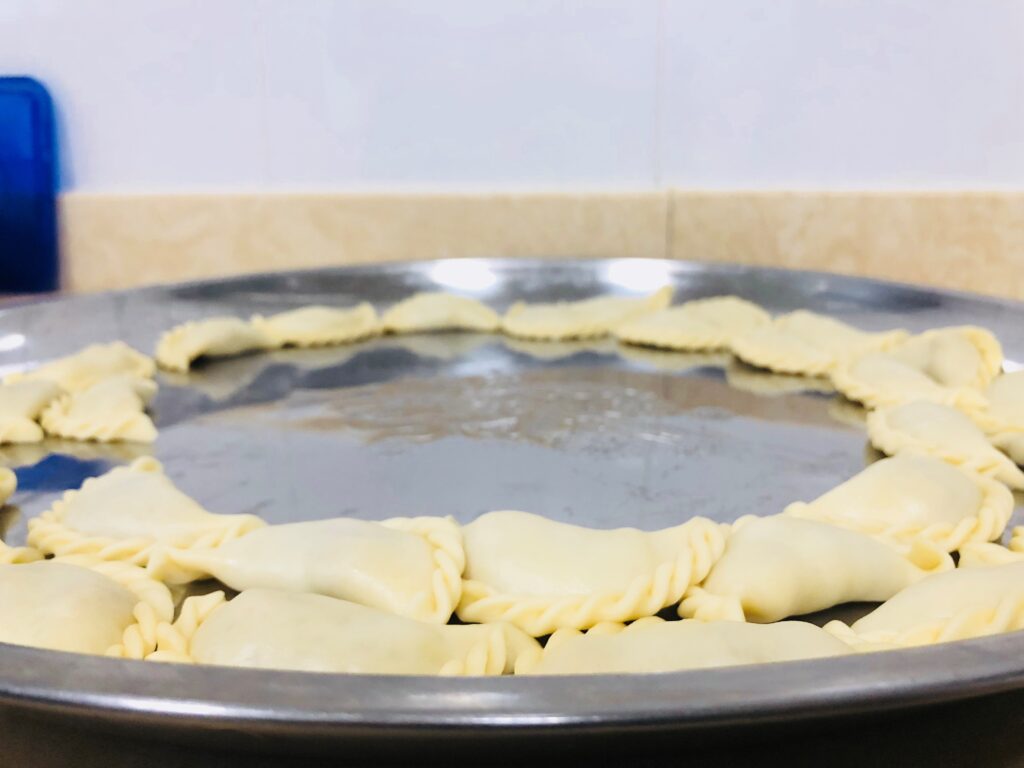
Making curry puff could be hard but after eventually the hundredth curry puff it turns out easy.
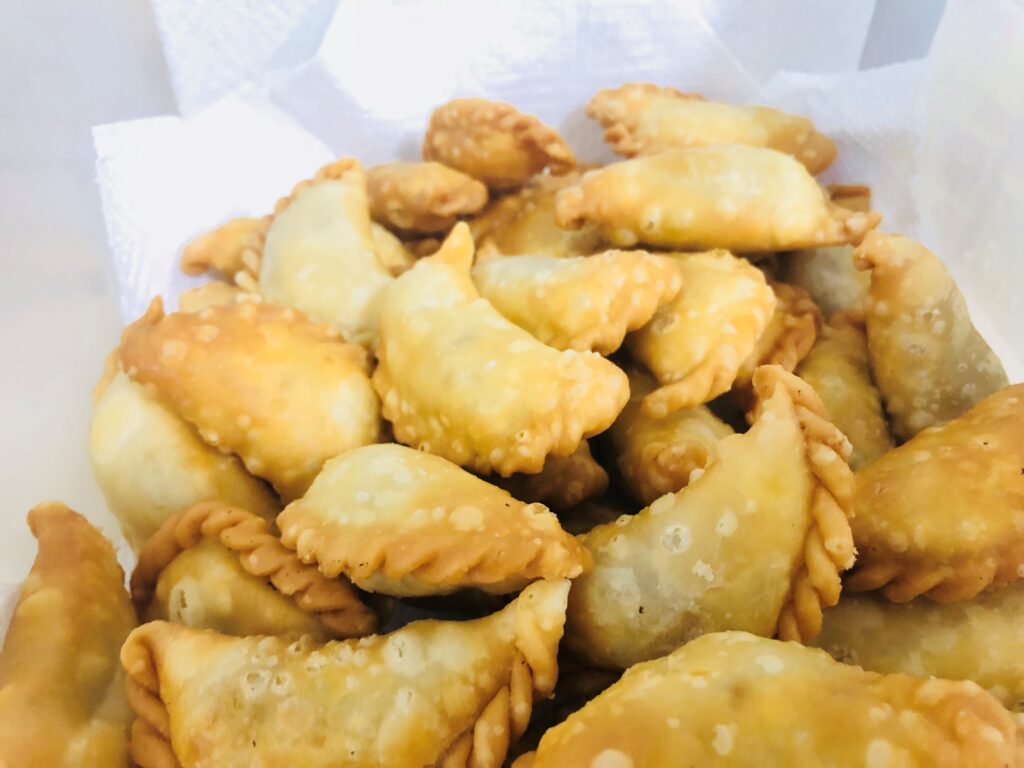
Golden color of the curry puff shows that it has been cooked perfectly.
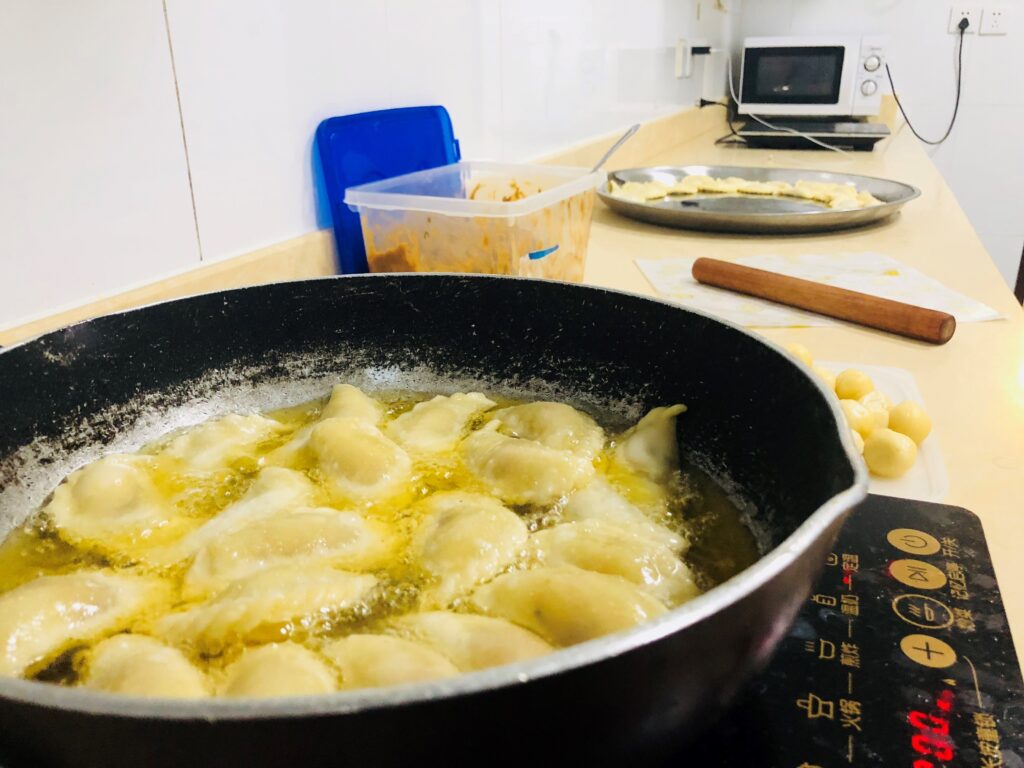
The curry puff have to be cooked in a very hot oil.


